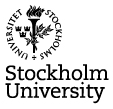Dr. Joseph A. Tainter on models of Collapse, Resiliency and Sustainability
Dr. Josepth A. Tainter will on September 24, 2003 hold the seminar "The Development of Social Complexity: Models of Collapse, Resiliency, and Sustainability".
In combination these perspectives obscure much that is important in understanding social and environmental problems. Social sustainability results from successful problem solving, rather than directly from environmental conditions. Social complexity in turn develops from problem-solving at all scales from local to national and international. Complexity in problem solving is an economic function, and can both support and hinder sustainability.
Historical studies reveal three outcomes to long-term change in problem-solving institutions: collapse, resiliency through simplification, or sustainability based on growing complexity and increasing energy subsidies. These outcomes may take decades or centuries to develop, indicating that a science of social sustainability must be historical. The historical cases discussed in the presentation yield concrete lessons about future human sustainability.
About Joseph A. Tainter
Joseph A. Tainter taught anthropology at the University of New Mexico, and currently directs the Cultural Heritage Research Project, Rocky Mountain Research Station, Albuquerque, New Mexico.
Research on the evolution of sociocultural complexity has led to fi eldwork in North America, Hawaii, the Near East, and West Africa, and to the publication of his book The Collapse of Complex Societies (1988). He is co-editor of the books Evolving Complexity and Environmental Risk in the Prehistoric Southwest (1996) and The Way The Wind Blows: Climate, History, and Human Action (2000).
Dr. Tainter´s research on sustainability led to collaboration with two ecologists to write Supply-Side Sustainability (2003), the fi rst book on this topic to integrate social, historical, and biological science.
His work has been used in the United Nations Environment Programme (Kenya), UNESCO, the European Joint Commission and the National Nutrition Institute (Italy), the National Prehistory Museum (France), the International Institute for Applied Systems Analysis (Austria), the Center for International Forestry Research (Indonesia), as well as throughout North America.
He has been invited to present his research to the Getty Research Center, the International Society for Ecological Economics, and many conferences.
Time and place
Place: Linné Hall, the Royal Swedish Academy of Sciences
Lilla Frescativägen 4, Stockholm
Vacancies | Contact | Environmental policy | Cookies
Stockholm Resilience Centre
Stockholm University, Kräftriket 2B | Phone: +46 8 674 70 70 | info@stockholmresilience.su.se
Organisation number: 202100-3062 | VAT No: SE202100306201


